What Are the 2023-2024 Teacher Pay Scales?
14 Feb, 20241-2 minutes
In this blog, you will learn:
- What Teacher pay scales are.
- How much Teachers earn.
- How Teachers can increase their salary.
- Where the latest Teacher jobs are and how to apply for them.
With the government announcement that there will be a 6.5% pay rise for Teachers in England, it can be difficult and confusing to find and understand the updated pay scales for the current academic year.
Throughout this blog, we’ve broken it down and provided a list of Teacher pay scales to explain how much a Teacher earns and how pay scales can vary.
What are Teacher pay scales?
Teachers’ pay is decided according to the agreed pay scale which determines a fair and equal pay. Teacher pay scales are a series of pay ranges to ensure that teaching staff are paid a fair and appropriate wage according to their responsibilities, experience and location.
According to the School Teachers’ Pay and Conditions guidance, schools and local authorities ‘must abide by Teacher pay scales,’ with the exception of non-maintained schools (meaning academies, independent schools, public schools and private schools) as they are free to set their own pay scales.
How much do Teachers earn?
From September 2023, Teachers in England who entered the profession earn a minimum of £30,000, but this can vary depending on location. For Teachers in London, their salary could rise to as much as £36,745. The new government pay rise has seen the figures for Early Career Teachers (ECT) increase to be more in line with inflation.
A newly qualified Teacher can expect to earn a salary on the lowest point of the scale with opportunities to increase their pay as they gain more experience in the classroom. Unqualified Teachers are paid according to a different pay scale, which can range from £20,598 to £37,362.
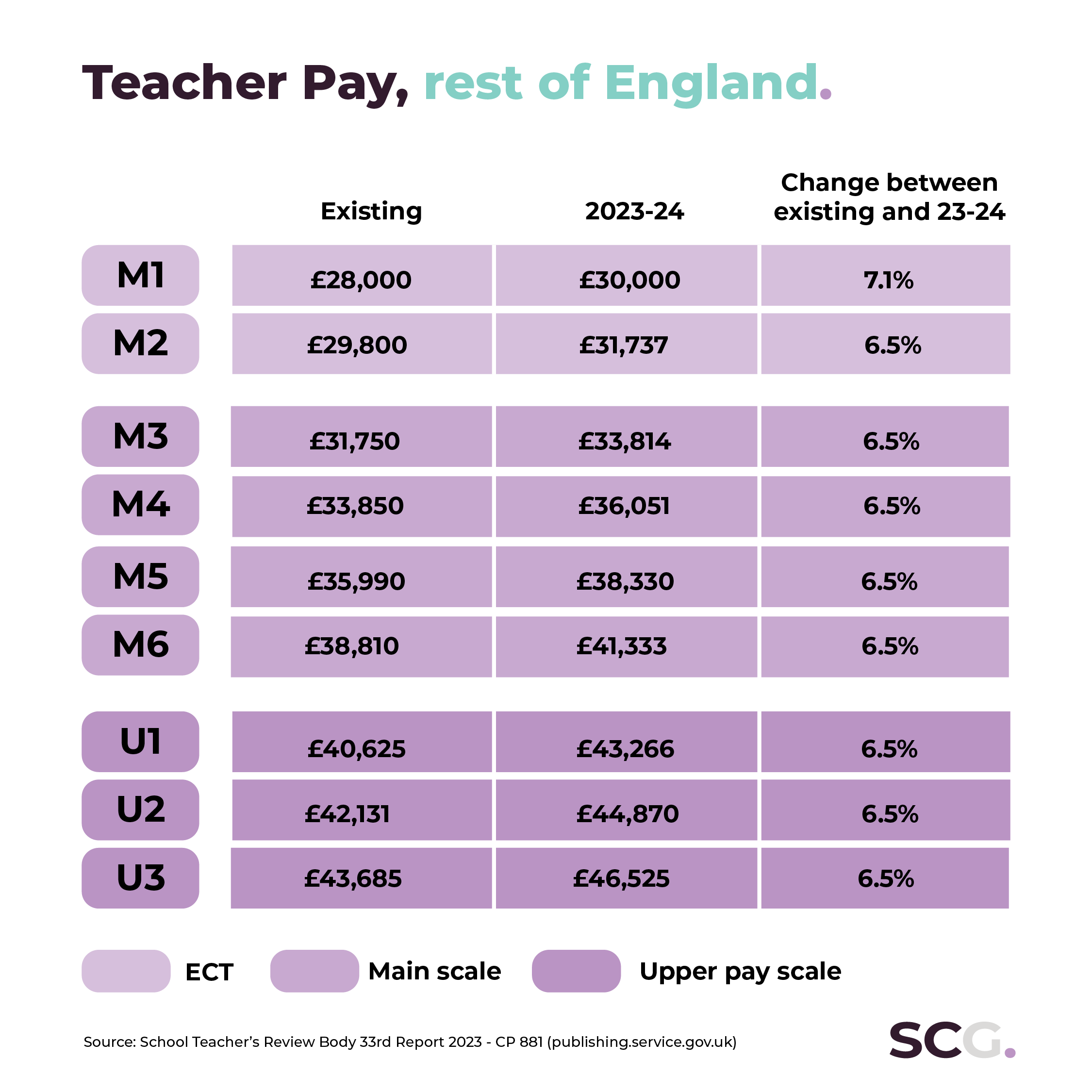
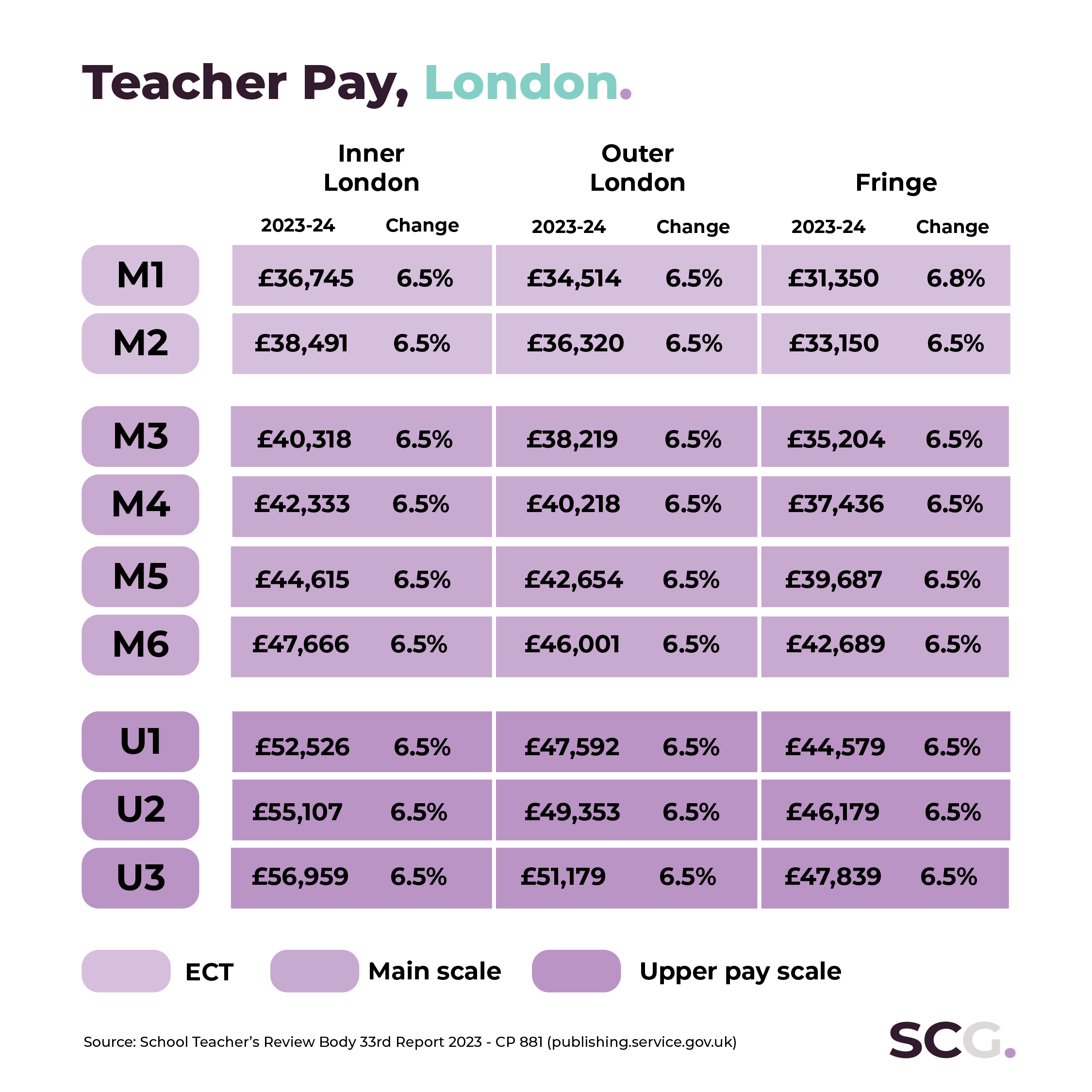
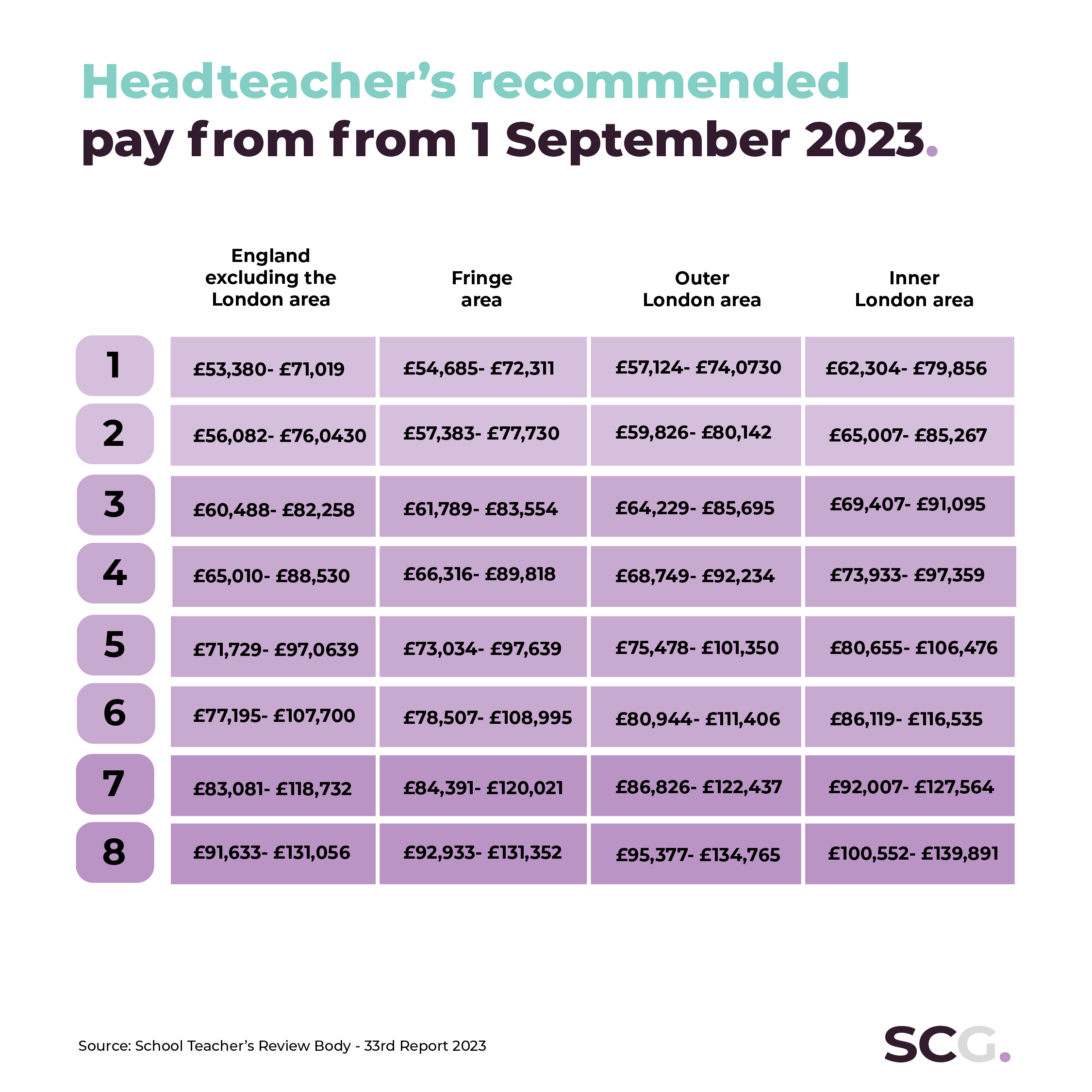
How can Teachers increase their salary?
Understanding Teacher pay scales is crucial, and so is understanding how to earn more money. Teachers are paid according to teaching pay scales, but their salary can be topped up with a teaching and learning responsibility (TLR) payment.
In most circumstances, Teachers move up the pay scale by one increment per academic year until they reach the upper pay scale or move up the scale by being recognised for their teaching ability. They are then required to produce a portfolio of evidence to demonstrate their contribution to the school before entering the upper pay scale.
Once Teachers reach the top tier, which is upper pay scale 3, their pay will stop increasing unless they take on additional responsibilities such as becoming a Head of Year or Head of Department. A TLR payment is an additional payment on top of your standard salary and although these payments are fixed for the whole of England, they are categorised depending on whether the additional responsibility is a one-off or time-limited.
If a Teacher takes on a SEND role such as SEND Teacher or SEND Teaching Assistant, there can be an additional payment associated with this, depending on location, experience and the level of education being taught.
Here at Spencer Clarke Group, we have a wide range of SEN teaching jobs available in some of the most sought after mainstream and specialist schools in the UK.
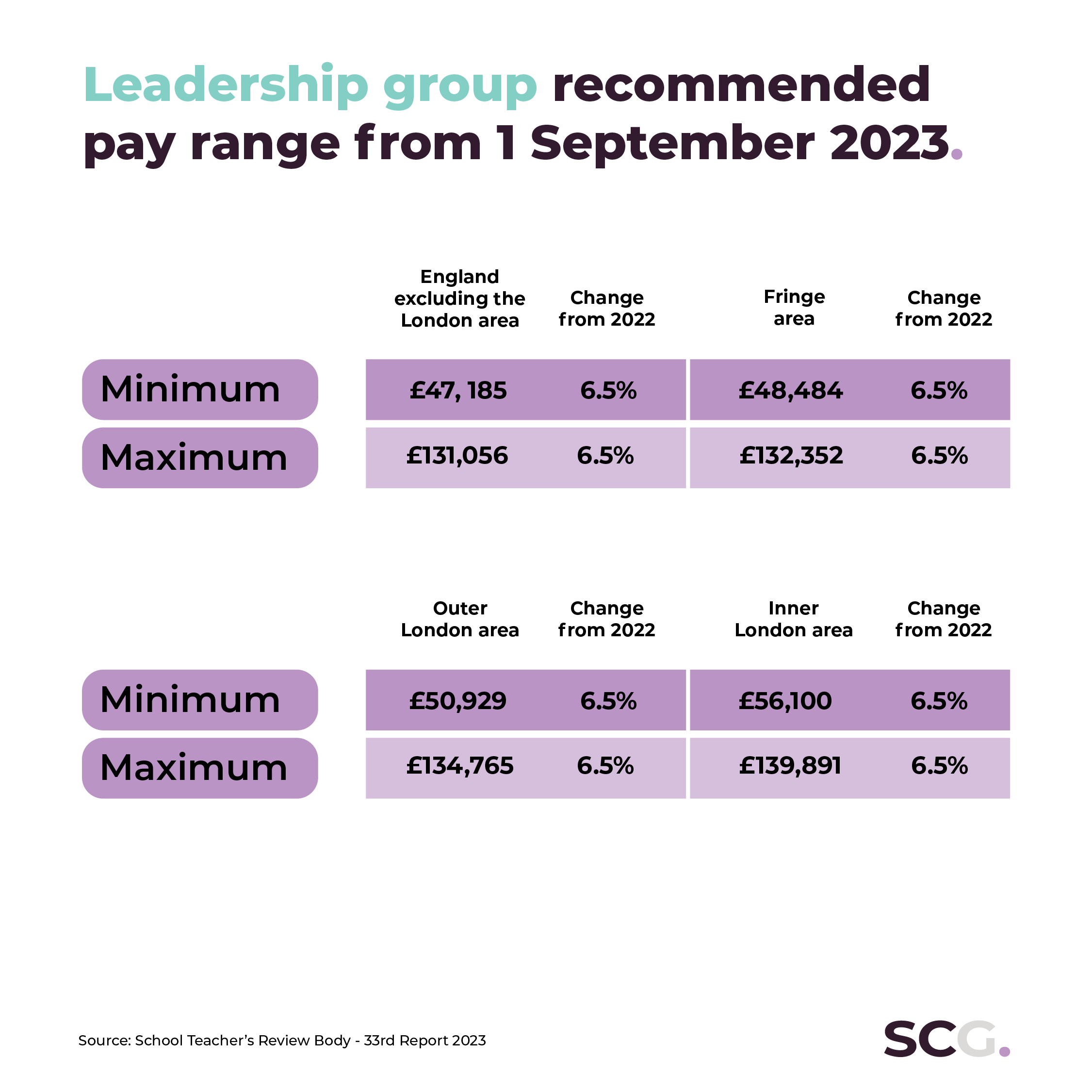
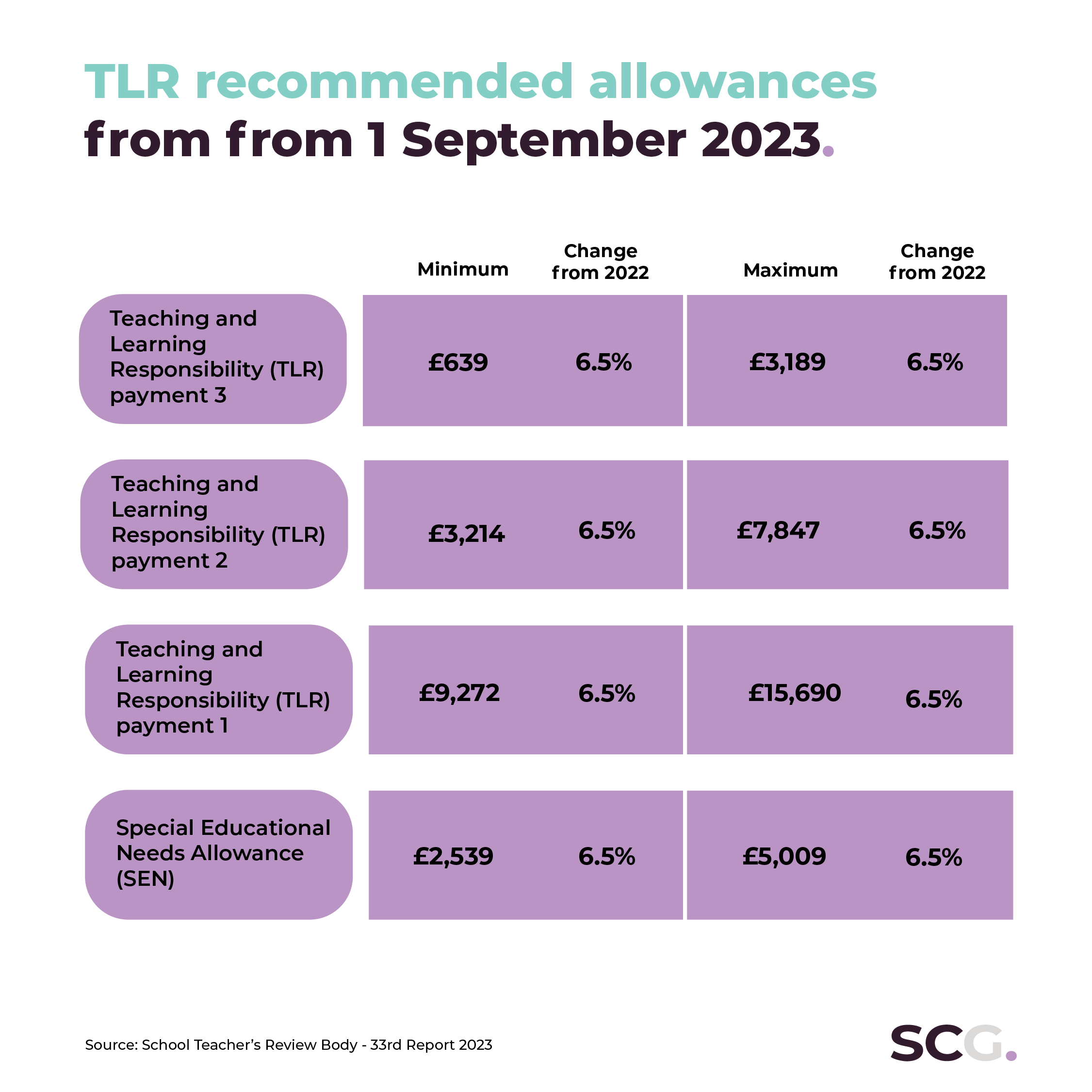
How much of my pay will go towards my pension?
Throughout their careers, Teachers accrue money that goes towards the pension they receive each year in retirement. Teachers in a state school in England, will be automatically enrolled into the Teachers’ Pension Scheme and the amount contributed depends on their total earnings.
The amount you contribute depends on salary and can range from 7.4% to 11.7% of your total earnings.
Do Teachers get paid on strike days?
Like most industries that go on strike, Teachers who go on strike will not be paid and will have one day of pay deducted from their wages. The new government guidance determines that ‘pay deductions should be made on the basis of 1/365th of their annual salary for each day of strike action.’
The amount deducted depends on the individual's salary and whether they are a part-time or full-time Teacher.
What if I change jobs?
If you’re thinking about changing jobs to increase your earnings, there are some things to consider before you hand in your notice, as it may not necessarily be the quickest way to move up the pay scale.
They must consult the Teacher resignation dates to see when they need to hand in their notice as Teachers have longer notice periods than a lot of other professions to ensure students are covered for the term. If the dates don’t correlate with the end of the holiday, your school will expect that you will continue to work until the end of your notice period.
How much notice you have to give will depend on your role, as Headteachers have a longer notice period than Teachers.
Whatever your motivations for leaving your current role, whether it’s for a promotion or a career change, make sure that you are aware of your resignation deadline.
Our recent blog gives further information about when should Teachers apply for jobs.
Get into teaching
If you’re considering a career in teaching, why not check out what qualifications you need to be an early years Teacher or how to become a primary school Teacher. These blogs are packed within actionable insights to get you started.
Find your next teaching job
If you’re looking for your next challenge, why not take a look at the Teacher jobs available with us now. We have a range of temporary, permanent and temp-perm positions at a number of mainstream and SEND schools throughout the North West.
Why not upload your CV and one of expert consultants will be in touch to discuss relevant opportunities for you.
If you loved this content, why not take a look at some of these:
- When should Teachers apply for jobs?
- How to prepare your CV for a Teaching job.
- How to prepare for a school Teacher interview.
Recruit a Teacher
If you’re struggling to recruit and retain great staff, we are a specialist education recruitment agency which specialises in recruiting teaching, support and facilities staff.
As an agency, we offer a unique experience as the majority of our team have experience working as Teachers in the education sector, and continue to visit schools and work in the classroom to better understand the education environment and needs.
To discover more about our teaching recruitment services, why not give our Managing Consultant Jamie Heath a call on 01772 954200 to discover how we can recruit for your SEND school.
Meet Jamie Heath
Who is Spencer Clarke Group?
We are a forward-thinking recruitment company committed to reshaping the industry through innovation and a genuine passion for creating positive change.
We are passionate about shaping a brighter, more fulfilling future for all and finding talent that can have a positive impact on an organisation’s growth and development for the long haul.
We operate in two sectors:
In eleven specialisms:
Healthcare, Social Care & Nursing
Corporate Functions & Business Support




